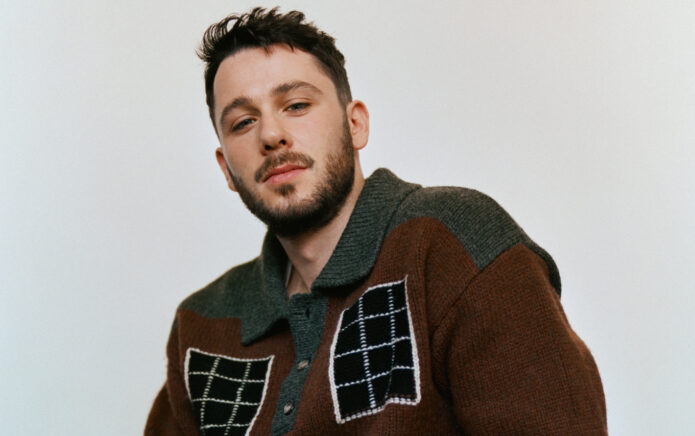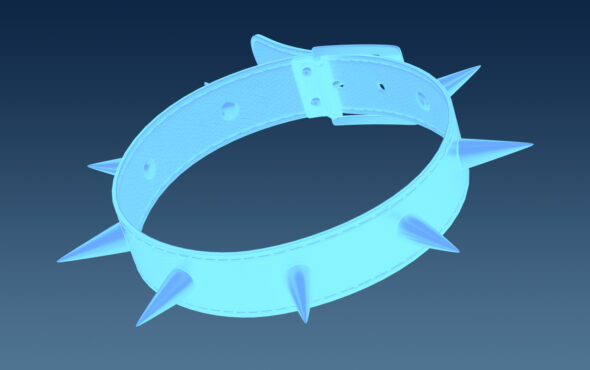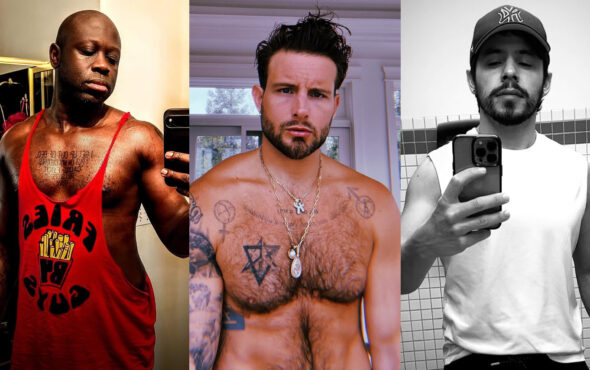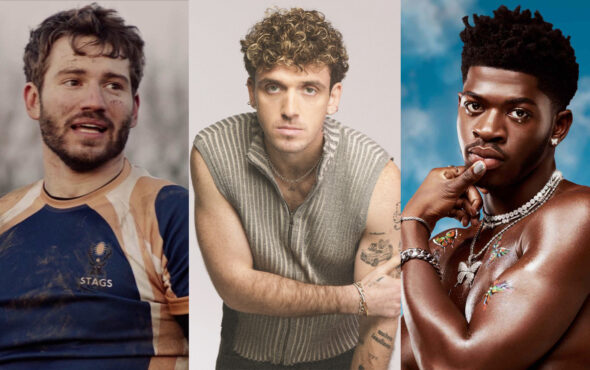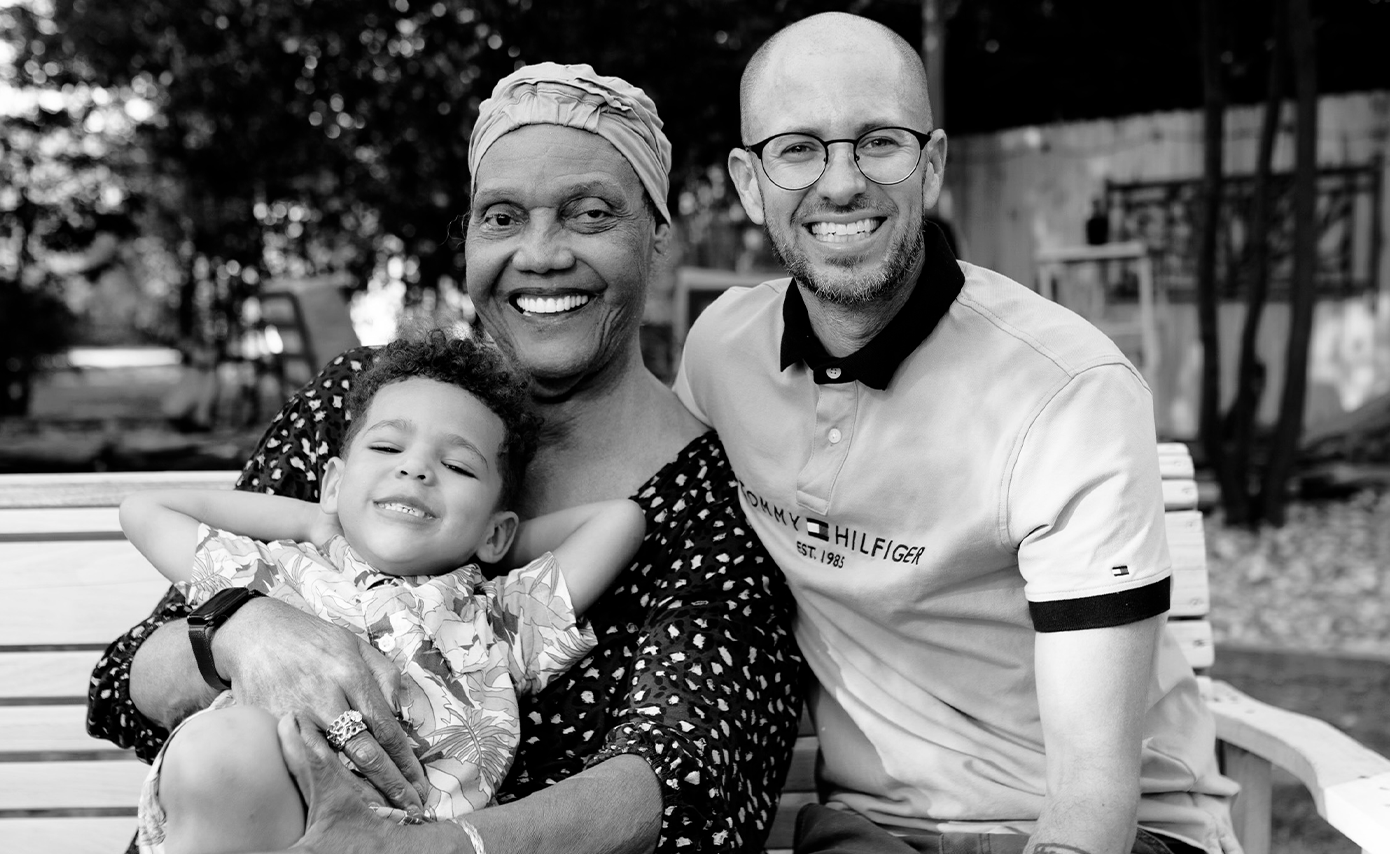
Family doesn’t have to mean a mum, dad and 2.5 kids living in the suburbs. It can come in all shapes and sizes, from single parents to blended households. In the queer community, we’ve long found ways to celebrate forms of kinship which fall outside of heteronormative models – whether it’s revering our queer elders or embracing the chosen family who have stood by us when blood relatives have not.
Whatever family looks like to you, across ties of friendship or strands of DNA, it’s important to hold your loved ones close. However, trans and non-binary parents don’t receive the same recognition that cis mothers and fathers do, making it all the more important to explore what family can mean outside of cisgendered norms.
Below, we spotlight different trans-led families to celebrate International Trans Parent Day, which falls annually on the first Sunday of November.
“When an adult decides to call you their mother, you instantly feel attached to them.”
Miss Major Griffin-Gracy (all pronouns) 82 and Beck Witt (he/him) 44
Stonewall veteran, trans activist and author, Miss Major is a mother to three children: her two sons 52-year-old Jonathan (he/him), 44-year-old Christopher (he/him), and her youngest Asiah (he/him), a two-year-old. Beyond that, she is a maternal figure to many – some of whom she has never met.
In an interview with Toshio Meronek, you once said, “If your mother doesn’t treat you right, pick another mother.” You’ve been a parent figure to many in the community. How did that all begin?
MM: You don’t have a say in who refers to you as a mother. One day, years ago, a girl asked me if I would mind her calling me mother and I gladly accepted. That’s how this started and then it just overtook me! Some parents don’t always take to their children, even if they have carried that child inside of them. I never had that experience, but I can still create that emotional bond with someone. When an adult decides to call you their mother, you instantly feel attached to them.
What does being a parent mean to you?
MM: It’s everything. Kids open you up to see the world differently and make you forget all the bullshit that you’ve been through. Times change but children always remain a joy in your life. They always endear themselves to you. You constantly feel overjoyed and blessed to have them.
What advice would you give to new parents?
MM: Love them, that’s all you have to do. Care for them, look out for them and always be there for them. When you get older, they don’t have the time anymore because they’re becoming their own person and they’re moving into a new chapter. Go with the flow; don’t object to it. Cherish the time when they’re young and let them go out into the world when they’re ready.
“Sometimes I just look at her and think, oh my god, how great is it to have queer parents? She can be whoever she wants when she grows up.”
Logan Brown (he/him) 27 and Bailey J Mills (they/them) 24
Nova, a five-month-old, is Logan Brown and partner Bailey J Mills’ first child. Since Brown fell pregnant a year and a half into his relationship with Mills, the couple’s lives have significantly changed, bringing them closer together as they navigate parenthood amidst their mid-to-late twenties. Throughout their pregnancy, and since giving birth, the pair have made it their mission to educate and provide resources around trans parenthood.
How have you found community and support as new parents?
LB: We’ve joined a few groups at Proud 2 b Parents in Manchester, including a trans and non-binary parent group. I couldn’t believe I was surrounded by so many people with the same shared experience of parenthood. You don’t see or hear that in your day-to-day life. It was really nice to be in that room and be reminded you’re not alone.
What’s your fondest memory of parenthood so far?
LB: Every day. It’s all the little special things that take place. The first time Nova smiled, laughed or started making sounds, it was beautiful to witness. Sometimes, I look at her and think how great it is to have queer parents. She can be whoever she wants when she grows up. We took her to Pride and had her hanging out with all the drag queens. It was amazing to see her in that environment, held by the queens and surrounded by love and queerness.
What does family represent for you?
LB: Family is everything. I’ve realised that now more than ever. We want to surround Nova with beautiful people from our immediate family and our queer chosen family. Being a parent means listening, learning, accepting and being there for each other, and lots of cuddles! At the end of the day, it’s all about love.
You have a book coming out. Can you tell us more about it?
LB: It’s a children’s book called In My Daddy’s Belly: The Miracle of Male Birth about navigating life as a pregnant trans man. It will be a good resource for cis parents, trans parents and the kids of trans parents and it’s a great book for anyone who wants to learn about different families.
“We’ve always laughed so much together and brought out the silly side in each other, back then and to this day.”
Catriona Innes (she/her) 38, Jo Clifford (she/her) 70
Catriona Innes’ (she/her) mother passed away when she was 19 and, later in life, her other parental figure, Jo Clifford (she/her), transitioned. A novelist and the Commissioning Director at Cosmopolitan UK, Innes has written extensively about her support for Clifford’s transition, the joy within their parent-daughter relationship and her wedding day where Clifford walked and gave a heartwarming “trans parent of the bride” speech.
What was your family dynamic like when you were growing up?
CI: My mum, who passed away when I was 19, was a strong feminist writer and my parents didn’t subscribe to gendered roles – I didn’t have a gendered upbringing.
How did growing up in a household where traditional mother and father roles weren’t enforced impact you?
CI: It allowed me to challenge what we are taught about who we should be. For example, I decided that I was not going to have children myself. I’m also married but I’ve always been very independent in that relationship. I’ve never viewed the world in a gendered way and it’s led me to challenge what we’re taught and how we can craft our own joy and happiness. It’s been really lovely.
How would you describe your daughter-parent relationship with Jo?
CI: We’re very silly together; we have loads of fun and laugh a lot. When I was younger, we used to rollerblade to the patisserie shop and back again. She was always up for doing what the kids wanted to do. She got her own pair of rollerblades and joined us for the ride. It’s carried on like that as we’ve both got older. Sometimes, it’s serious. We’ve gone through a lot as a family, especially when we lost my mum, but we still manage to find lightness together. That’s what I love most about our relationship; she has a lot and brings a lot of joy to those around her.
What’s a memory the two of you share that you’ll always treasure?
CI: When I was little, I did a lot of dancing in shows. I always remember her laugh because it was so loud that you could always hear it wherever you were – even when I was on stage! She’s a playwright and a wonderful storyteller too. Growing up, she used to make up all these little rhymes that would have us howling with laughter – we’ve always brought out the silly side in each other.
